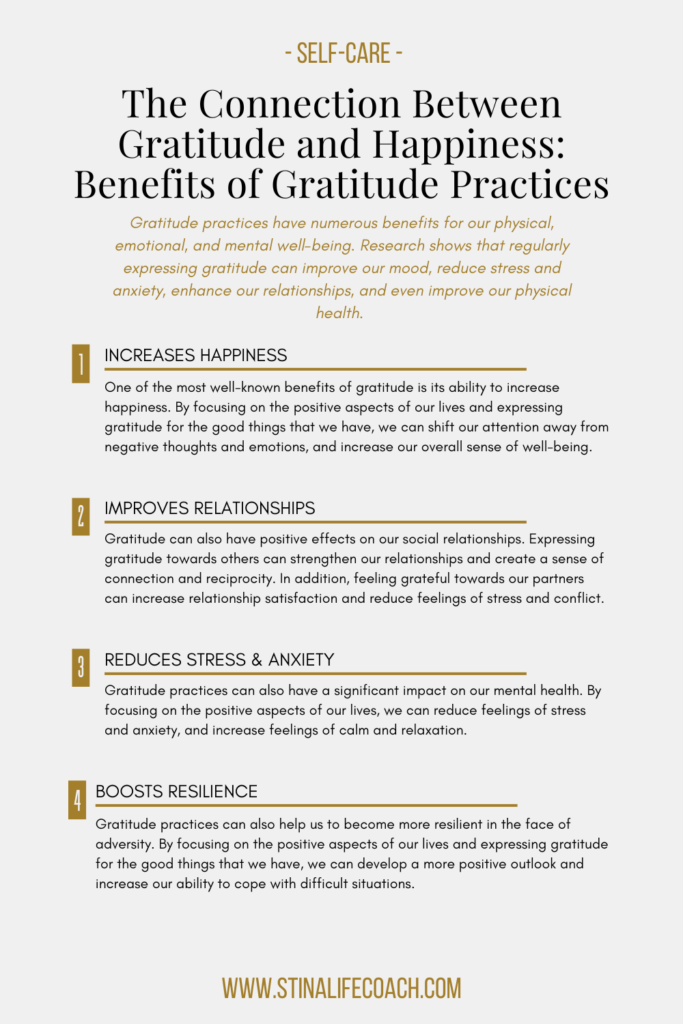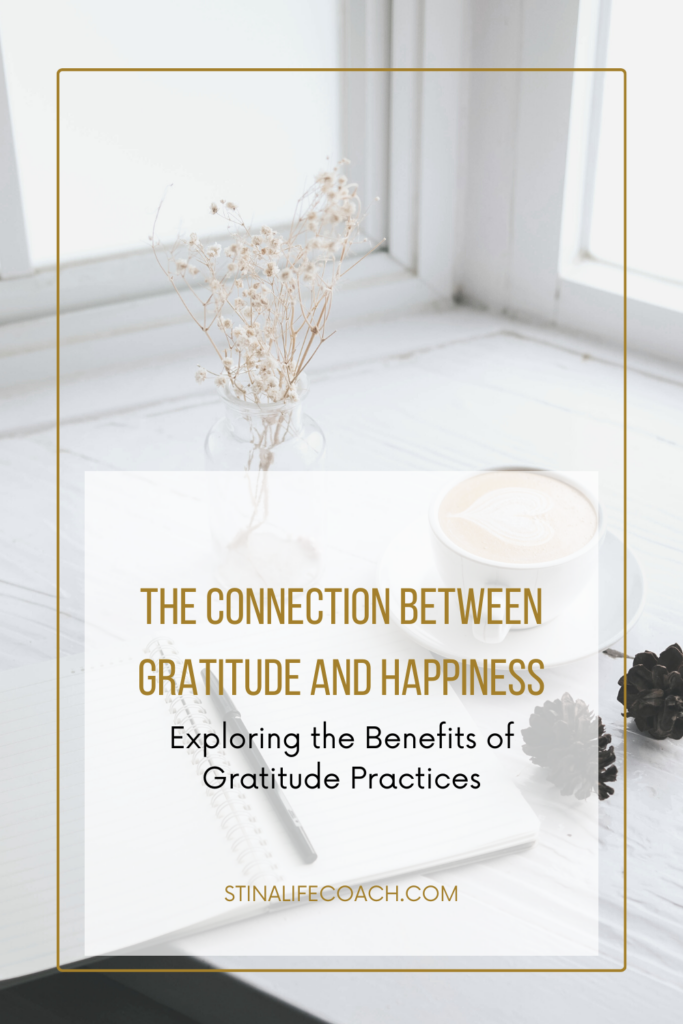The Connection Between Gratitude and Happiness: Exploring the Benefits of Gratitude Practices
Gratitude is often described as a feeling of thankfulness or appreciation for something that we have received or experienced. While gratitude is often associated with religious or spiritual practices, research has shown that gratitude can have significant benefits for our mental and physical health, as well as our overall happiness and well-being.
In this blog post, we will explore the connection between gratitude and happiness, and the benefits of incorporating gratitude practices into our daily lives.

The Science of Gratitude
Gratitude is not just a subjective experience, but also has measurable effects on the brain and body. Neuroscientific studies have found that practising gratitude can increase activity in areas of the brain associated with positive emotions and social bonding, such as the hypothalamus, the ventral tegmental area, and the anterior cingulate cortex.
Gratitude has been consistently linked to greater happiness in positive psychology research. Expressing gratitude can help individuals experience more positive emotions, appreciate positive experiences, enhance their overall well-being, cope with adversity, and cultivate healthy relationships.
Gratitude can also have positive effects on our physical health. Studies have found that practising gratitude can lower blood pressure, improve immune function, and reduce symptoms of depression and anxiety.

RELATED: 21-DAY HAPPINESS CHALLENGE
Benefits of Gratitude Practices
Gratitude practices have numerous benefits for our physical, emotional, and mental well-being. Research shows that regularly expressing gratitude can improve our mood, reduce stress and anxiety, enhance our relationships, and even improve our physical health. Gratitude practices can also increase feelings of self-worth and promote a more positive outlook on life. By focusing on what we have rather than what we lack, we can cultivate a sense of abundance and contentment that can improve our overall quality of life.
1 Increases Happiness
One of the most well-known benefits of gratitude is its ability to increase happiness. By focusing on the positive aspects of our lives and expressing gratitude for the good things that we have, we can shift our attention away from negative thoughts and emotions, and increase our overall sense of well-being.
2 Improves Relationships
Gratitude can also have positive effects on our social relationships. Expressing gratitude towards others can strengthen our relationships and create a sense of connection and reciprocity. In addition, feeling grateful towards our partners can increase relationship satisfaction and reduce feelings of stress and conflict.
3 Reduces Stress and Anxiety
Gratitude practices can also have a significant impact on our mental health. By focusing on the positive aspects of our lives, we can reduce feelings of stress and anxiety, and increase feelings of calm and relaxation.
4 Boosts Resilience
Gratitude practices can also help us to become more resilient in the face of adversity. By focusing on the positive aspects of our lives and expressing gratitude for the good things that we have, we can develop a more positive outlook and increase our ability to cope with difficult situations.

RELATED: HOW TO START A SUSTAINABLE SELF-CARE ROUTINE

Incorporating Gratitude Practices into Our Daily Lives
There are many different ways to incorporate gratitude practices into our daily lives. Some popular practices include:
- Gratitude Journaling: Writing down three things that you are grateful for each day can help you to focus on the positive aspects of your life and increase your overall sense of well-being.
- Expressing Gratitude to Others: Taking the time to express gratitude to the people in your life can strengthen your relationships and create a sense of connection and reciprocity.
- Mindful Gratitude Practices: Taking a few moments each day to focus on the sensations of gratitude in your body can help you to cultivate a deeper sense of appreciation for the good things in your life.
In conclusion, gratitude is a powerful tool for increasing happiness and well-being. By incorporating gratitude practices into our daily lives, we can reap the many benefits of this positive emotion and cultivate a greater sense of joy, connection, and resilience.





